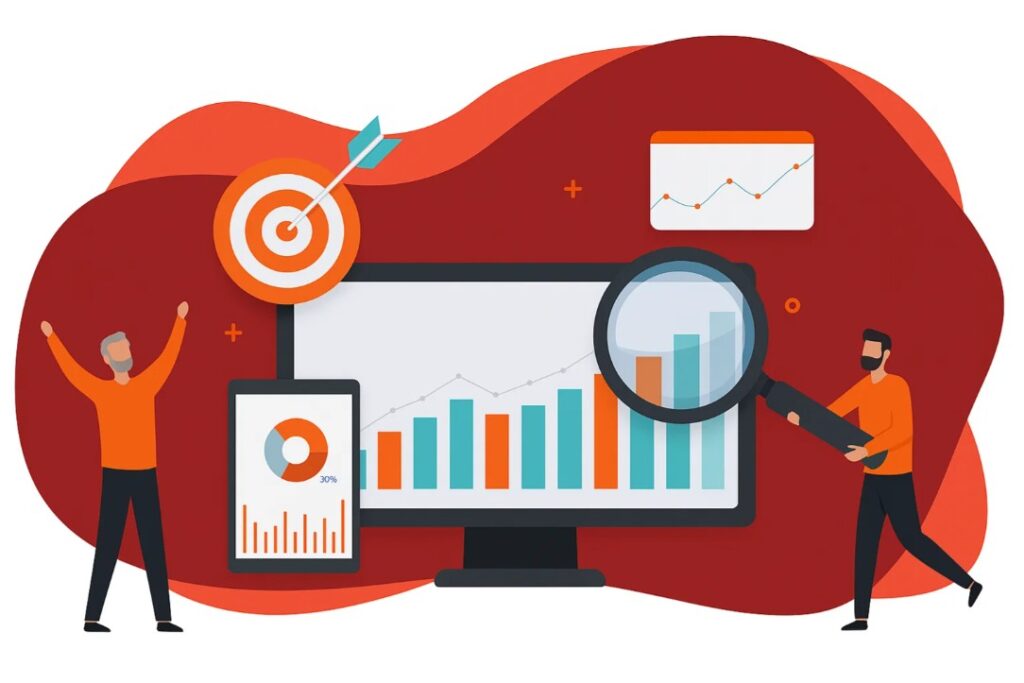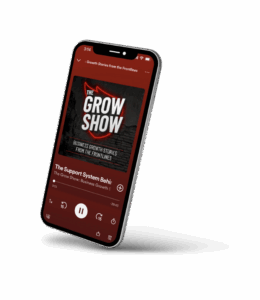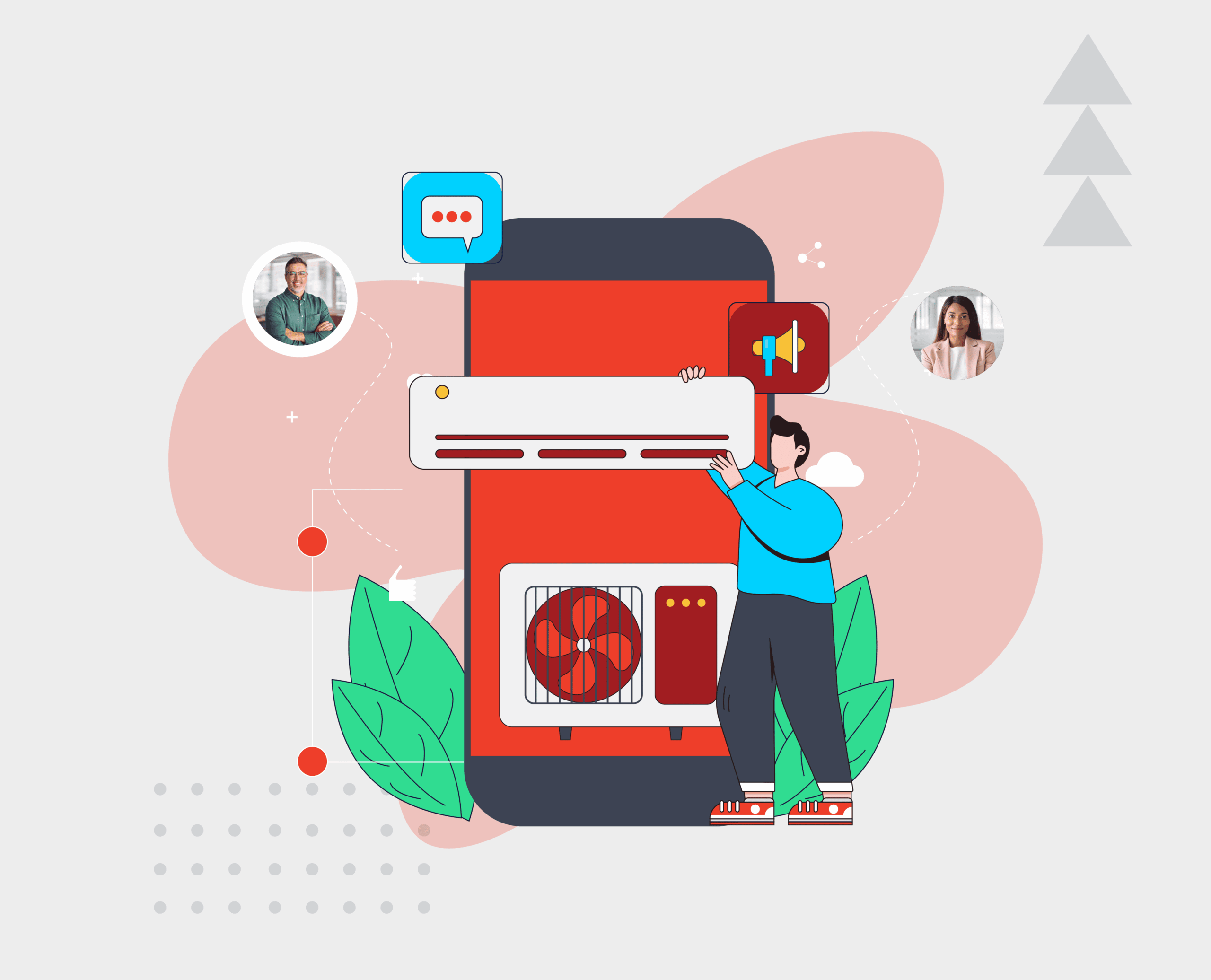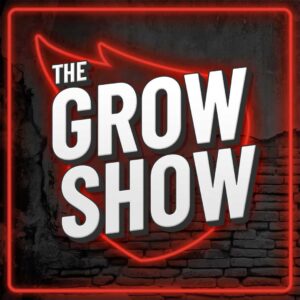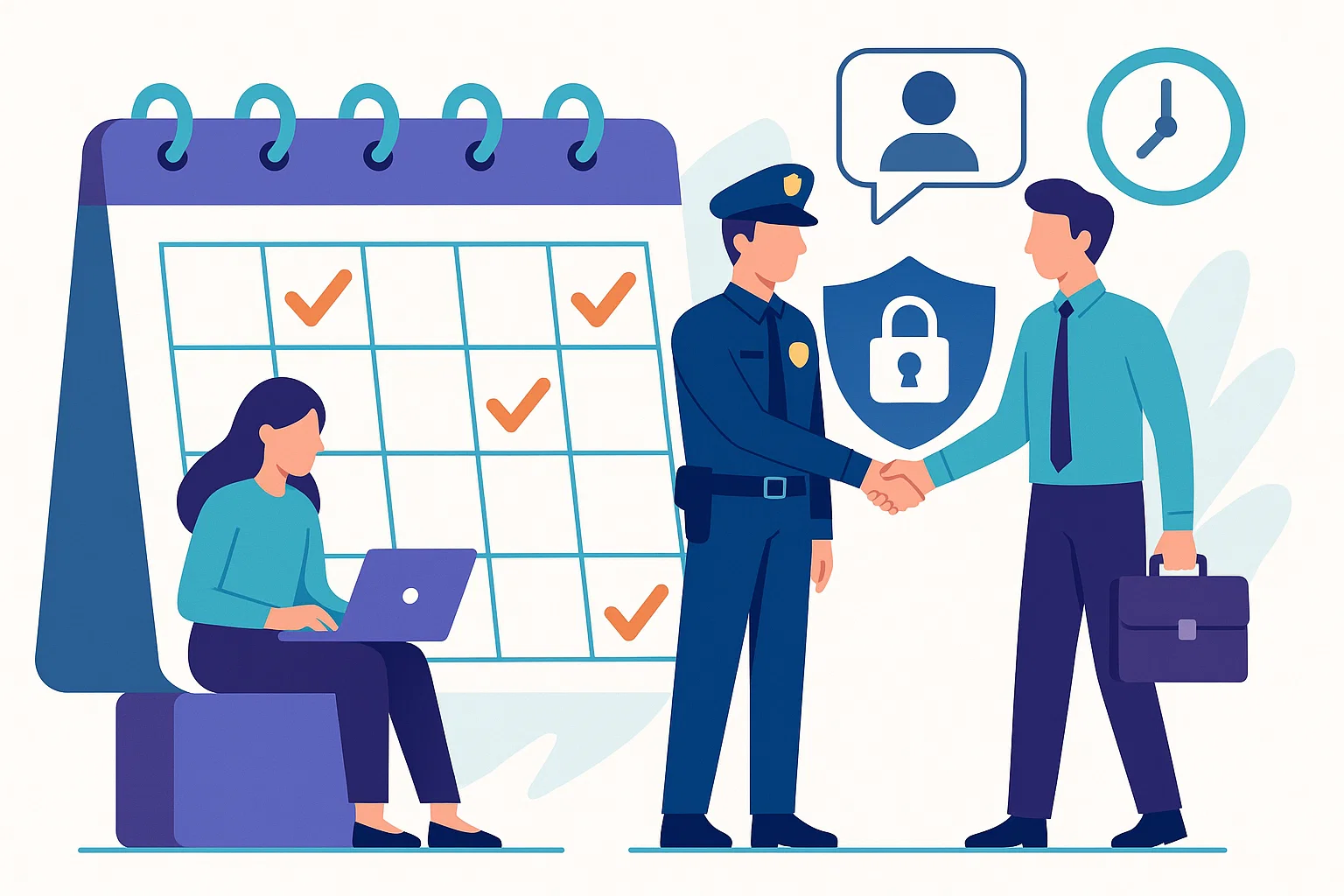Cold calling remains a cornerstone of HVAC growth—especially in commercial markets where rapport, credibility, and timing drive decisions. Done right, it reaches prospects who aren’t responding to ads, creates real-time engagement, and books the visits that keep technicians busy year-round.
Contents
- 1 Why Cold Calling Still Works (Keep These Benefits in Focus)
- 2 Select the Right Prospects (Targeting = Results)
- 3 Know Your Services Cold (Confidence Converts)
- 4 Use “Service Needed” Triggers in Your Openers
- 5 Timing & Seasonality (Call When It Counts)
- 6 Personalize & Be Consultative (Facilities First)
- 7 Call Frameworks & Scripts (Natural, Not Robotic)
- 8 Objection Handling (Reframes That Advance the Deal)
- 9 Follow-Up: Where Wins Happen
- 10 CRM & Call Tracking (Make It Repeatable)
- 11 Metrics to Review Weekly
- 12 Train the Team (Consistency Wins)
- 13 Tailor by Service Type (Match Message to Offer)
- 14 Compliance & Ethics (Protect the Brand)
- 15 10-Minute Action Checklist
- 16 Final Word
Why Cold Calling Still Works (Keep These Benefits in Focus)
Immediate feedback & real conversations to uncover needs and qualify fast.
Direct path to scheduling a service visit or a no-cost assessment.
Fills short-term capacity gaps and balances seasonality.
Access to off-radar buyers who aren’t searching or seeing your marketing.
Select the Right Prospects (Targeting = Results)
Commercial focus: property managers, facility directors (schools, warehouses, hospitals, municipalities), business owners, CRE investors/developers, multi-site operators, retail/office portfolios.
Segment by:
Property type, size/square footage, location, roof/RTU age, contract status (under contract vs ad hoc).
Business size and industry to tailor your offer.
Signals of need (frequent service calls, utility spikes, comfort/IAQ complaints).
Predictive cues using data (aging equipment cohorts likely to need PM/replacement).
List sources:
Past customers inactive 12+ months, trade shows/expos, purchased/compliance-checked lists, and local business directories.
Know Your Services Cold (Confidence Converts)
You’re selling solutions, not just service calls. Be fluent in:
Preventive maintenance → fewer emergencies, lower OPEX, longer asset life.
Upgrades (VRF, high-efficiency units, smart controls) → energy savings, rebates, comfort.
IAQ solutions → filtration, purification, health/compliance, tenant satisfaction.
Emergency response → uptime, SLAs, safety.
Talking points to prepare: common issues (short cycling, hot/cold spots, humidity, filtration, controls drift) and the exact resolution + business benefit for each.
Tailor by pain point: energy costs, IAQ, downtime, compliance, budget constraints—answer with a clear, relevant fix.
Use “Service Needed” Triggers in Your Openers
Educate prospects on signs of trouble and tie to an offer:
Unusual noises (rattling/buzzing/whining), frequent cycling.
Inconsistent temperatures/zoning problems; poor air quality or humidity.
Utility bill spikes; musty/burning odors; visible moisture/mold.
These triggers make your call timely and valuable (not “pitchy”).
Timing & Seasonality (Call When It Counts)
Best windows: 10:00–11:30 a.m. and 2:00–4:30 p.m.
Avoid Mondays and late Fridays; A/B test by segment (PMs often earlier; owners later).
Seasonal hooks:
Spring/Fall tune-ups (lowest disruption).
Pre-summer cooling / pre-winter heating readiness.
Energy audits when rates or loads change.
Position maintenance plans and upgrades as essential prep to avoid downtime and costly emergencies.
Personalize & Be Consultative (Facilities First)
Listen actively: “What’s most painful about HVAC at your site today?”
Probe smartly: contract status, PM cadence, unit age, comfort/IAQ goals, emergency history.
Adapt on the fly: align recommendations to constraints (budget/operations).
Use proof: quick case stats (downtime reduced, $ saved, faster response).
Call Frameworks & Scripts (Natural, Not Robotic)
Commercial Gatekeeper → Decision-Maker
Opener:
“Hi, this is [Name] with [Company]. We help [property type] teams cut HVAC emergencies and energy spend with proactive maintenance. Who oversees HVAC for [Property/Portfolio]?”
To the right contact:
“Thanks for taking my call. Are you under a service contract, or handled ad hoc?”
Value pitch (short):
“Many businesses like yours see lower energy costs and better air quality after our no-cost system assessment. It takes 15 minutes to schedule—would next week work?”
Alternative Commercial Value Script (keeps unique phrasing)
“Good day, this is [Name] from [Company]. We specialize in maintaining optimal working environments. We’re offering a complimentary assessment; many businesses see decreased energy costs and improved air quality afterward. Could I schedule a 15-minute appointment to share details?”
Residential Tune-Up Script (keep if you serve both)
“Hi [Name], this is [Rep] with [Company] here in [City]. Quick question—have you scheduled your seasonal tune-up yet? Skipping it can shorten system life and raise bills. We have Thursday and Tuesday open—work for you?”
Voicemail (concise + benefit + next step)
“Hi [Name], [Name] at [Company]. We help facilities cut emergencies and save on energy. I’ll email details—if a no-cost assessment before [season] helps, call [number] or reply to book.”
Same-Day Follow-Up Email
Subject: Quick HVAC check for [Property]
Body: 2–4 lines referencing the call, 1 proof point, one CTA (calendar link).
Objection Handling (Reframes That Advance the Deal)
Price: Emphasize total cost of ownership—fewer emergencies, energy savings; mention financing or low-cost plans.
Timing: Offer flexible scheduling; stress minimal disruption and seasonal readiness.
Necessity: Educate on risks of neglect (higher bills, more repairs, shorter life).
Loyal to current vendor: Respect it; offer a non-disruptive second opinion/benchmark; differentiate via technology, warranty, trained techs, response SLAs.
Do it in-house: Position complementary audits, peak-season backup, and documentation for compliance/budgeting.
Follow-Up: Where Wins Happen
Cadence:
Day 0: call → voicemail if needed → email with calendar link.
Day 3: call back → LinkedIn connect + short value note.
Day 7: email case study or seasonal checklist.
Day 14: “Still want this before [season/event]?” touch.
Post-call relationship plan:
Timing: schedule a follow-up promptly.
Added value: share maintenance tips, rebate alerts, or industry insights.
Consistency: regular, non-intrusive touches build trust and recall.
CRM & Call Tracking (Make It Repeatable)
Use ServiceTitan/HubSpot/Salesforce (or similar) to:
Log attempts, connects, objections, and next steps.
Automate reminders and multi-touch sequences.
Record calls for coaching and pattern spotting.
Attribute appointments/revenue back to calling efforts.
Metrics to Review Weekly
Call → contact rate
Appointment set rate (by list/rep/time)
Show rate (held visits/appointments)
Close rate from booked assessments
Cost per booked call and revenue per booked call
Double down on lists, windows, and talk tracks that the numbers validate.
Train the Team (Consistency Wins)
Weekly role-plays on discovery and objections.
Call reviews with constructive micro-tweaks.
Seasonal script refreshes (offers, weather hooks, proof).
Battlecards with FAQs, quick metrics, and competitor comparisons.
Celebrate booked appointments publicly to reinforce behaviors.
Tailor by Service Type (Match Message to Offer)
Tune-Ups/Maintenance Plans: lifespan + energy savings; seasonal discounts; easy scheduling.
Emergency Repair: availability, rapid response, local references.
Upgrades/Installs: lifecycle stage (8–12 years), rebates, financing, ROI.
IAQ Add-Ons: allergies/occupancy density; UV, purification, filtration—bundle with PM.
Compliance & Ethics (Protect the Brand)
Honor Do Not Call lists; follow TCPA/telemarketing rules.
Source leads properly; offer clear opt-out paths.
Be transparent, professional, and respectful—every interaction builds (or harms) goodwill.
10-Minute Action Checklist
Define 2–3 ICP segments and pull clean lists per segment.
Load a 4-touch cadence (call/VM, email, call/LI, content email).
Adopt the commercial script above; role-play for 30 minutes.
Track connects → appointments → shows → closes in your CRM.
Review metrics weekly; refine lists, time windows, and talk tracks.
Add seasonal hooks (pre-summer/pre-winter) to boost urgency.
Final Word
Cold calling HVAC leads isn’t about luck—it’s about preparation, timing, and consistent follow-through. Use targeted lists, consultative conversations, seasonal relevance, and disciplined cadences to turn first calls into booked assessments and long-term contracts.
If you want a team that does the research, calls confidently, and books meetings that stick, Abstrakt’s HVAC-specialized BDRs can help build a calling program that fills your calendar consistently.

Madison Hendrix
Madison has worked in SEO and content writing at Abstrakt for over 5 years and has become a certified lead generation expert through her hours upon hours of research to identify the best possible strategies for companies to grow within our niche industry target audiences. An early adopter of AIO (A.I. Optimization) with many organic search accolades - she brings a unique level of expertise to Abstrakt providing helpful info to all of our core audiences.
- Madison Hendrix#molongui-disabled-link
- Madison Hendrix#molongui-disabled-link
- Madison Hendrix#molongui-disabled-link
- Madison Hendrix#molongui-disabled-link
